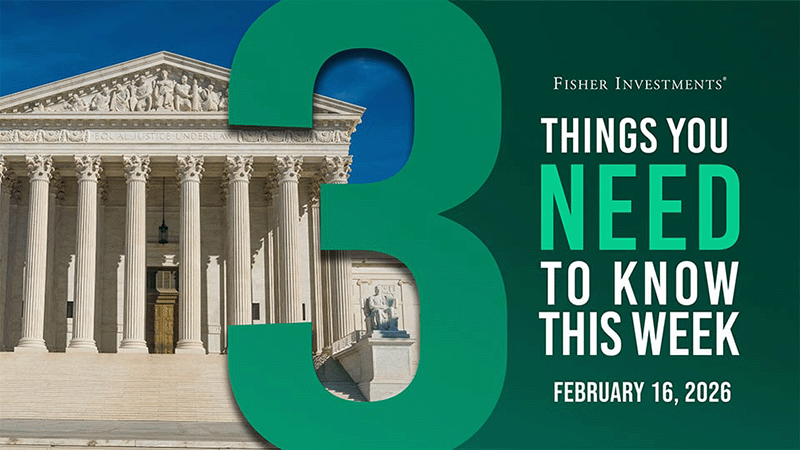Personal Wealth Management / Politics
Europe the Morning After
A look at the French and Greek election results.
When the world woke Monday, France had a new president and Greece had a hung parliament—and many wondered what this means for France, Greece and the eurozone.
France
With 52% of the vote, Socialist FranÇois Hollande unseated Nicolas Sarkozy. While most commentary has centered on economic policy—particularly Hollande’s pledges to tax high earners at 75%, increase public investment and renegotiate the EU’s fiscal compact—for many voters, the contest seemingly came down to fatigue. Polls seemed to indicate voters saw Sarkozy as aloof and out of touch, while Hollande was likable and relatable, suggesting he didn’t win on policy alone.
Which he may be thankful for, considering legislative victories may prove tough. While his Socialist Party controls the Senate, they may not wrest the National Assembly majority from Sarkozy’s center-right UMP next month. Hollande’s second-round margin was about half what polls predicted, suggesting UMP could do all right—especially once freed of Sarkozy’s stigma. The far-right National Front, which captured 18% two weeks ago, could win enough seats to form a coalition with the UMP. Or the Socialists could end up in a coalition with the Communists and/or centrist Democratic Movement. Markets could also signal their displeasure with some of the more onerous measures—sovereign yields likely won’t cheer legislation that could harm France’s fiscal standing. And higher yields could jeopardize Hollande’s goal of a balanced budget by 2017, perhaps forcing him to pause.
Hollande’s already apparently moderating on the eurozone stage. After taking several shots at German Chancellor Angela Merkel during the campaign, Hollande’s making nice—they’ve chatted and plan to meet soon, and both claim commitment to a strong Franco-German partnership. And Merkel’s steadfast refusal to renegotiate the fiscal compact may not upend things since Hollande appeared to relax his views Sunday, saying, “My mission now is to give European construction a growth dimension.” Perhaps he realizes renegotiating would be moot, considering most European leaders—Merkel included—agree the EU needs a growth agenda (though they differ on the details), and a new growth pact is gaining traction. Common growth policy, whether attached to or following the budget deal, likely satisfies Hollande’s aims.
From here, the conversation likely shifts to whether stronger northern economies will help finance infrastructure projects in the periphery. Perhaps stronger states use their deeper coffers as a bargaining chip to spur supply-side structural reforms throughout the EU. And Hollande will be merely 1 of 27 players in these talks.
Greece
Questions surround the Hellenic Parliament, where no party won a majority. Compounding matters, bailout terms require €11.5 billion in budget cuts by June, or Greece won’t receive its next aid tranche.
Yet in our view, Greece isn’t in the outright chaos some outlets describe—seats aren’t split along the popular vote. The highest-polling party gets 50 seats automatically, and the remaining 250 go proportionately to parties winning more than 3%. Thus, center-right New Democracy won 108 seats with only 18.9% of votes and has three days to form a coalition.
The logical move is to partner with PASOK, the former ruling party, which has 41 seats. Both party leaders signed pledges to continue the austerity reforms the last government agreed to with the IMF and European Commission, and they’d be only two seats shy of majority. While the remaining parties (leftist Syriza, Communists, Democratic Left and far-right Golden Dawn) ran on anti-bailout platforms, New Democracy leader Antonis Samaras may find two willing rebels. Over three-fourths of Greek voters favor continued eurozone membership, and most observers agree complying with the EU/IMF’s terms is the only way. If Samaras makes a strong enough case to that effect, he could lure the fringe parties’ more pragmatic members—in which case, parliament could yet pass the required austerity measures.
If he’s not successful, Syriza gets three days, then it’s PASOK’s turn. If they fail, President Karolos Papoulias can try to broker a unity government, as he did when George Papandreou resigned. Fringe party members may be more receptive to his pleas for bailout support than they would be to Samaras, their rival. And if they’re not, Greece votes again, perhaps as soon as June. That contest would likely be a referendum on euro membership, which could yield vastly different results than Sunday’s contest, effectively a referendum on foreign-imposed austerity (which naturally benefits the far left and right). How a second election would square with June’s austerity deadline isn’t clear.
In short, for now, expect ongoing heated debate within Greece and heavy politicking over Greek aid. Which isn’t so very unusual from what we’ve seen these past three years.
If you would like to contact the editors responsible for this article, please message MarketMinder directly.
*The content contained in this article represents only the opinions and viewpoints of the Fisher Investments editorial staff.
Get a weekly roundup of our market insights
Sign up for our weekly e-mail newsletter.

You Imagine Your Future. We Help You Get There.
Are you ready to start your journey to a better financial future?

Where Might the Market Go Next?
Confidently tackle the market’s ups and downs with independent research and analysis that tells you where we think stocks are headed—and why.





